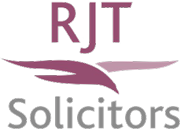To vaccinate or not to vaccinate? The new question for schoolchildren.
At a time when school children are supposed to be asking questions about homework or extracurricular activities, the announcement that the Pfizer Covid-19 vaccine is safe for use in children 12 – 15 years old, and that they can choose to receive it irrespective of their parents’ wishes, is leading to different questions being asked that go beyond their studies.
With uncertainty still present regarding the efficacy of the vaccines and, importantly, how safe they are for use in children, parents are questioning as to why their feelings are being allowed to be ignored when they feel that they are responsible for their children’s health and wellbeing decision making. This should be a matter of discussion between parents and their child/ren, but government guidance has been published which makes it clear that School Age Immunisation Service (SAIS) will operate a vaccination programme that will take place on school premises and those pupils deemed to be competent will be able to make their own decision as to whether to receive the vaccine or not.
Schools have received letters from concerned parents that should their child/ren receive the vaccine against their wishes then they will be taking legal action against the school. This leaves the school, parents, and crucially, children in a dilemma. Parents could be against immunisations and consider this to be an integral part of how they live their lives with their family, which is protected by law under Article 8 of the Human Rights Act 1998 which allows the right to a private and family life. Teachers and schools are caught in the crossfire as they have no decision-making powers in respect of the SAIS programmes; schools do not administer vaccines. They are administered by the SAIS. Children between the ages of 12- 15 years of age may wish to have the vaccine to ensure they are protected against a disease that has killed hundreds of thousands of people in the UK to date and is showing little sign of slowing down given the continued rise in cases. They could also choose to get the vaccine to protect loved ones or choose not to have the vaccine contrary to the views of their parents who want them to receive it. This conflict could cause issues between the child and their parent, with the parent saying that it is for them as the adult to decide what is best for their child because that is what they are… a child. However, a child has the legal right to be vaccinated without their parent’s consent and this is known as the Gillick competency test.
Gillick competence was established in 1985 after Victoria Gillick took legal action against a health authority to prevent contraception being given to under 16s without parental consent or knowledge (Gillick v West Norfolk & Wisbeck Area Health Authority [1986] AC 112 House of Lords). After a lengthy legal battle, the claim was dismissed but not without establishing a legal precedent that would come to the fore 36 years later. The precedent is applied in cases where it is necessary to determine whether a child is mature enough to make their own, informed decisions based upon an understanding of the implications of their decision. There are a number of factors that health professionals must take into account and these are:
If the healthcare professional believes the child meets this criterion, then that child can be vaccinated on a school site without parental consent. The school may not be involved in the process or told if a child has been assessed for Gillick competence but will be aware of the parents’ wishes and if a child is vaccinated or unvaccinated against their wishes then threats of legal action may follow.
Whilst the guidance is clear to schools about the SAIS programme, the law surrounding what rights children have in making their own decisions needs to be explained clearly not only to the child, but to the parents who could take action and spend money on legal fees only to find out that any claim is baseless, and that they have wasted their time and money. Should a child be found to have Gillick competence and wish to have the vaccine or not then they will be able to make that choice for themselves even if that means going against the wishes of their parents.








